All Pets Veterinary Medical Center Dental Care
Why is dental care important for my pet?
Your dog or cat today is expected to live longer than ever before. Continual improvements in the veterinary technology of preventative medicine and disease treatment has lengthened and improved the quality of life for our patients here in Bryan, College Station. While these improvements in longevity are a blessing, older dogs and cats are especially prone to dental disease.
There are three main causes of dental disease in pets:
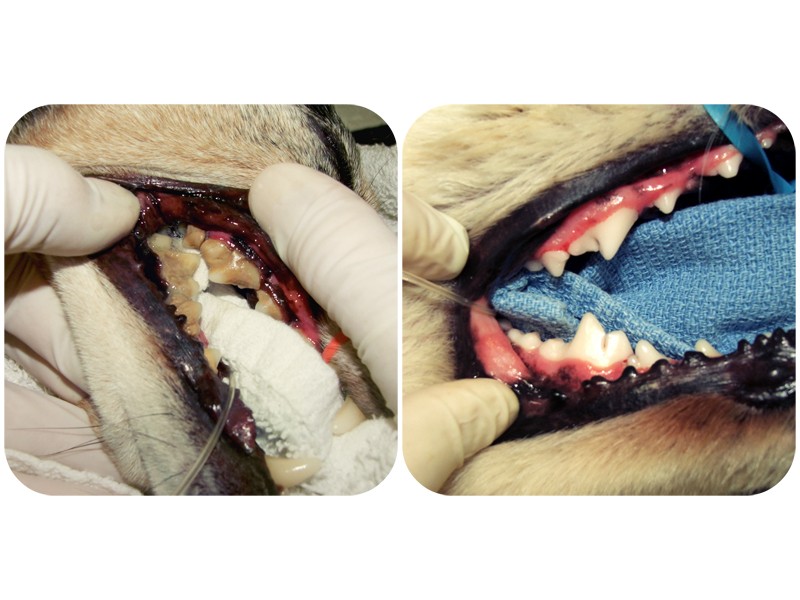
Plaque
Plaque is the first build-up of material adhering to tooth enamel. It is composed of a mix of intercellular matrix of bacteria, salivary polymers, remnants of epithelial cells and white blood cells. This material can cause caries, calculi build-up and periodontal disease. Take your pet to All Pets Medical so we can remove plaque and prevent tartar, gingivitis and other gum diseases.
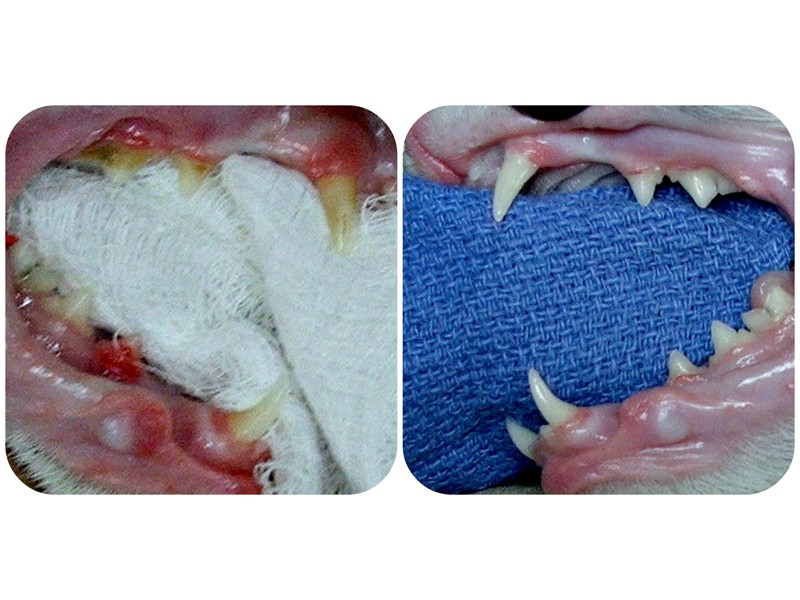
Tartar
If plaque is not removed, minerals in the saliva combine with the plaque and form calculus (or tartar). Calculus is calcium carbonate and calcium phosphate combined with organic material and is deposited on the surface of the tooth. The tartar can irritate the gums and cause inflammation known as gingivitis. Take your pet to All Pets Medical so we can remove tartar to prevent gingivitis and other gum diseases.
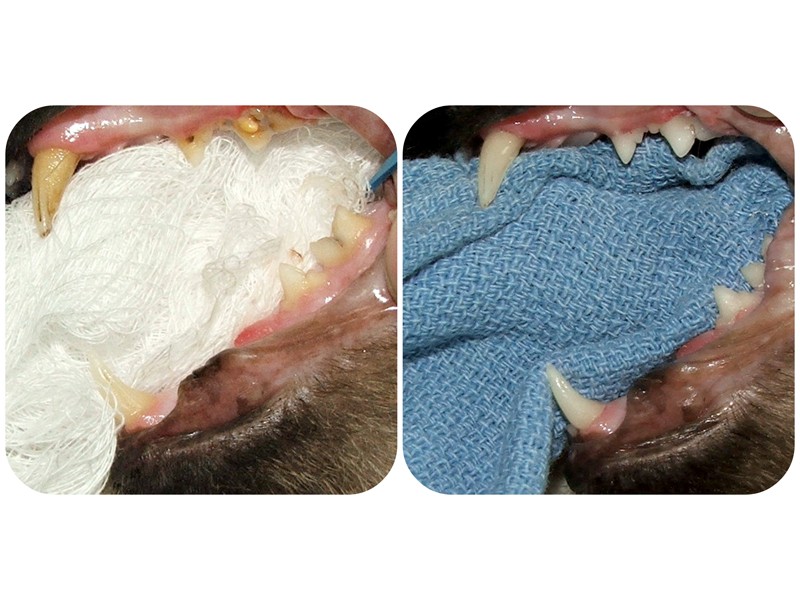
Periodontal Disease
Periodontal disease is the most common clinical condition occurring in both dogs and cats. It is a general term for a disease of the oral cavity that attacks the gum and bone and delicate tissues around the teeth. This disease is the result of tartar buildup below the gum line. When tartar accumulates between the teeth and gums, pockets form causing bacteria to flourish. If left untreated, periodontal disease develops and results in significant pain, loose teeth, abscesses, and bone loss.
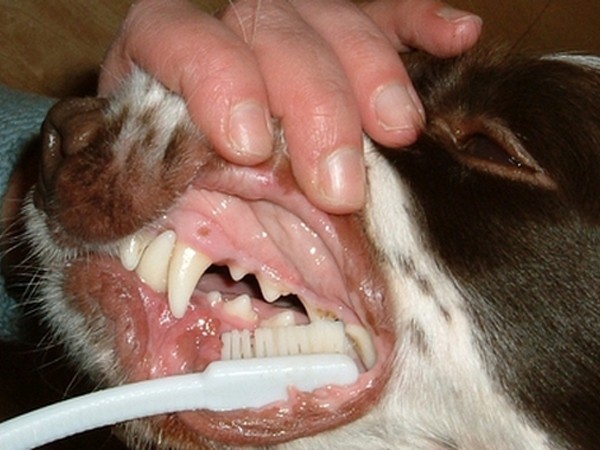
Prevention is the most important aspect of dental care
Dental disease is a progressive disease and does not subside in the absence of treatment. Effective treatment and prevention of dental disease can be achieved by creating a personalized plan with our pet doctor to address your pet's individual needs. Providing your pet with a well-balanced diet is one of the best ways to insure optimum oral health. It can also help immensely to brush your pet's teeth as well, but this needs to be done almost daily. It is extremely beneficial for you pet's long-term health status to address problems when they are minor and prevent the damaging effects of bacterial contamination and systemic disease.
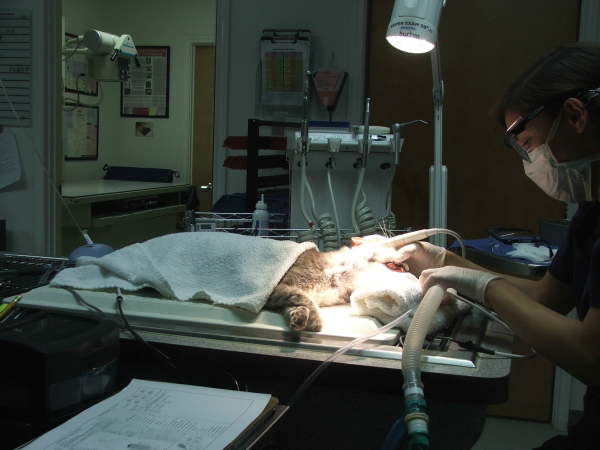
A Plan for You and Your Pet:
Our effective dental treatment and prevention plan includes:
- An oral health assessment detailing the extent of dental disease during physical examination
- Veterinary dental cleaning recommendations if needed
- Help and information for providing preventative care at home
- Prescription and over the counter medication to reduce and help prevent tartar buildup
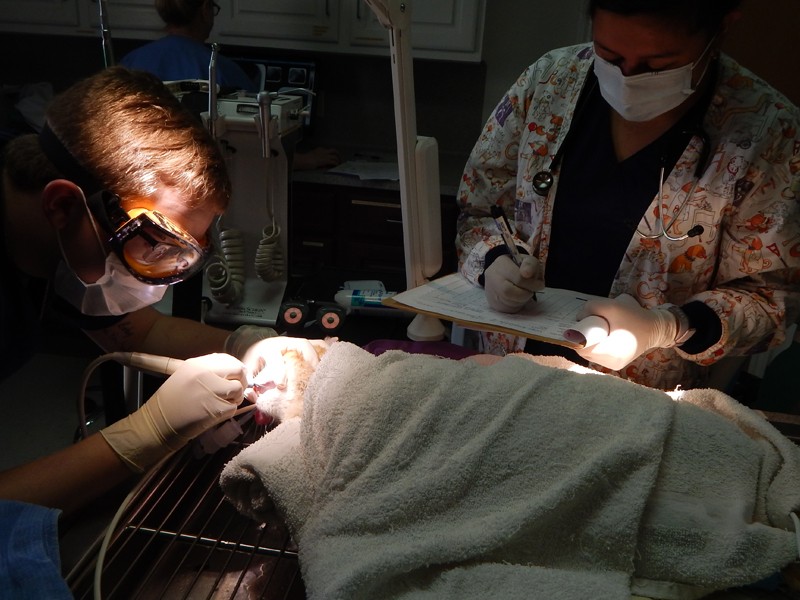
Professional Dental Cleaning:
When you come to All Pets Medical Center in College Station for an exam, please ask our veterinarians to create a comprehensive oral health assessment and treatment plan for your pet. Our team of trained pet vets wants to improve the health and well-being of your pet and provide you with as much information as possible. We will recommend a dental cleaning if needed.
Our dental procedure consists of several steps:
- X-rays are taken of each tooth and interpreted to identify any teeth that need to be extracted due to periodontal disease, infection, or injury
- Each tooth is checked for pockets and receding gums
- A trained technician cleans each tooth using an ultrasonic cleaning machine until all tartar is removed
- Each tooth is polished to remove microscopic scratches
- The mouth is flushed with an antibacterial solution
- A fluoride sealant treatment is applied
- A dental agent is applied to help the pet shed-off and retard future plaque formation
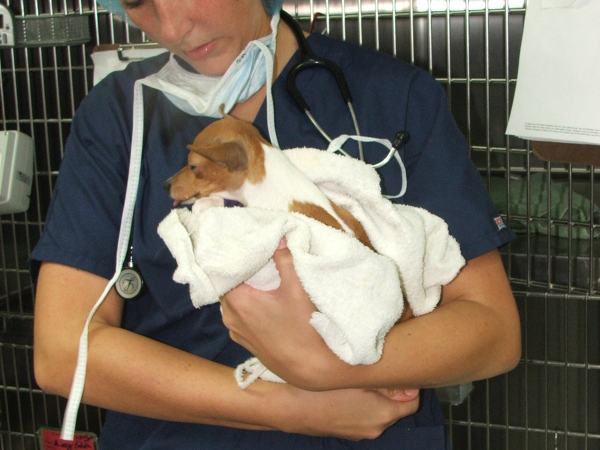
Anesthesia and patient monitoring:
We utilize the safest anesthetic drugs available and provide comprehensive patient monitoring throughout your pet’s procedure.
In addition to our doctor, your pet will be accompanied by a trained technician for the duration of the operation. Safety being one of our top priorities, our anesthetists remain by your pet’s side, closely monitoring his or her level of sedation and vital statistics.
Digital monitoring equipment is utilized whenever your pet undergoes general anesthesia. This equipment monitors several important vital signs including: heart rate, respiration rate, blood oxygen saturation, blood pressure, and core body temperature.















